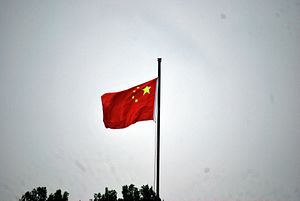Relations between China and the West are fraught to the point of being frightening. The United States is aggressive on a number of fronts (of which trade is only one), and Chinese anger about the broader motivation for this is so large there’s a danger Beijing could over-react. It might, for example, feel the need for a show-of-strength toward Taiwan – one that could easily spin out of control and lead to confrontation, especially if the Chinese Communist Party feels that the current protests in Hong Kong cannot be resolved. To offer Beijing new perspectives and to better serve its own interests, Europe needs a more nuanced China policy.
Europe would do well to realize that profound misconceptions are at the heart of the stand-off. For one, Chinese naiveté about the United States and Europe was long surprisingly high. Beijing firmly believed that China’s expansion through Belt and Road investments, military spending, and greater engagement in international organizations would benefit not just China but the world at large. Beijing expected other governments to understand that – and it certainly did not expect the reaction it is currently eliciting from Western powers.
For our part, too many people in the West view China as a totalitarian system that is controlled by the people at the top, in which there is no freedom of expression, where the interests of the leadership fully determine what happens throughout society and the political system. In reality, the system is much less centralized and totalitarian than we think. It is highly fragmented — different factions, ministries, localities, and regions have competing interests. They fight and try to undermine each other and push their own interests forward. Even President Xi Jinping has many enemies that make him anything but all-powerful.
On their part, the Chinese have enormously underestimated the violent nature and intolerance to genuine competition of Western civilization – and its power to make that felt. For sure, China is not a cuddly panda; it is striving for global power in a real and hard-nosed manner. But it never factored in that the West would not accept another country or culture trying to put itself on (at least) an equal footing — especially a non-democratic one.
Beijing thought the West would accept a much bigger Chinese role in the world – and now it is waking up to the fact it won’t. Worse still, China is becoming aware that a growing number of Westerners believe we are entering a clash of civilizations. The United States, in particular, is prepared for this fundamental clash for superpower status, and in a very Manichean way: there is good and evil, and one of the two shall win, so it had better be the good side, the American one.
As this has encouraged the Chinese to adopt a similar worldview, there now emerges a growing perception on both sides of the globe that China and the West are entering a contest that can only produce one winner. That is extremely dangerous. The Chinese are already creating a rhetoric of unity out of 5,000 years of history that in reality was extremely diverse and disparate. China believes that it will always be a unit because it has always been one. Although this is not true, but it’s becoming an ever-stronger and politically useful conviction.
China’s diplomacy is no longer driven by the assumption that people are fully rational. Beijing thought it made sense for the European Union to unite more as this would increase their power and benefit each country individually – and it lost faith when member states failed to deliver. Beijing is now having a similarly hard time with the United States, as it thinks Washington is acting irrationally under President Donald Trump. China’s leaders cannot deal with a maverick president, because they do not know how mavericks think. They are observing and trying to figure out what to do, without as yet reaching any firm conclusions.
We face the danger of China reacting to events in panic for the first time since Tiananmen in 1989. It is this — and not so much the possibility of American military aggression — that is so frightening. Trade sanctions are hurting China, and an outspoken independence candidate could win Taiwan’s general election in January – even more likely now that the events in Hong Kong have shown the Taiwanese that Beijing’s formula of “one country, two systems” is a fallacy. What if Xi, doubly under pressure, threatened Taiwan? Washington would certainly jump at the chance this would give to forge an alliance of democratic countries against China.
Europe needs to disentangle itself from this spiral of aggression driven by binary, winner-takes-all perspectives. As it does not aspire to be a superpower, Europe can deal with Beijing with more nuance than the United States – China is indeed a threat in some areas, but it remains a positive force in others. This is not an economic or a military challenge; it is a political one. How does Europe decide what to share and withhold? It needs to answer that question — not isolate China.
Frank N. Pieke is director and CEO of the Mercator Institute for China Studies (MERICS).

































